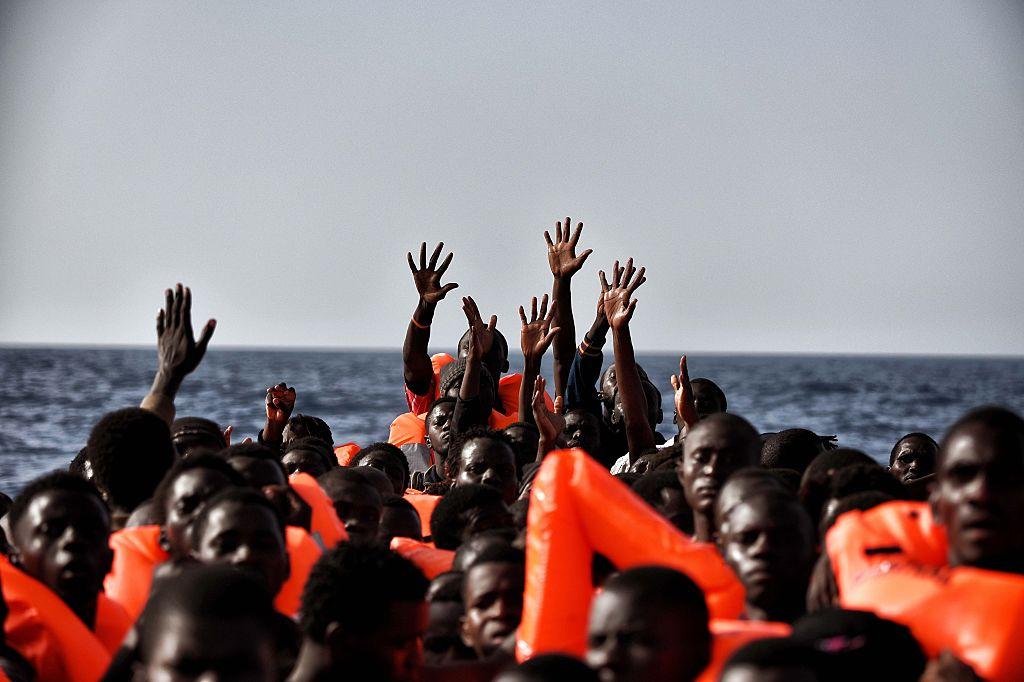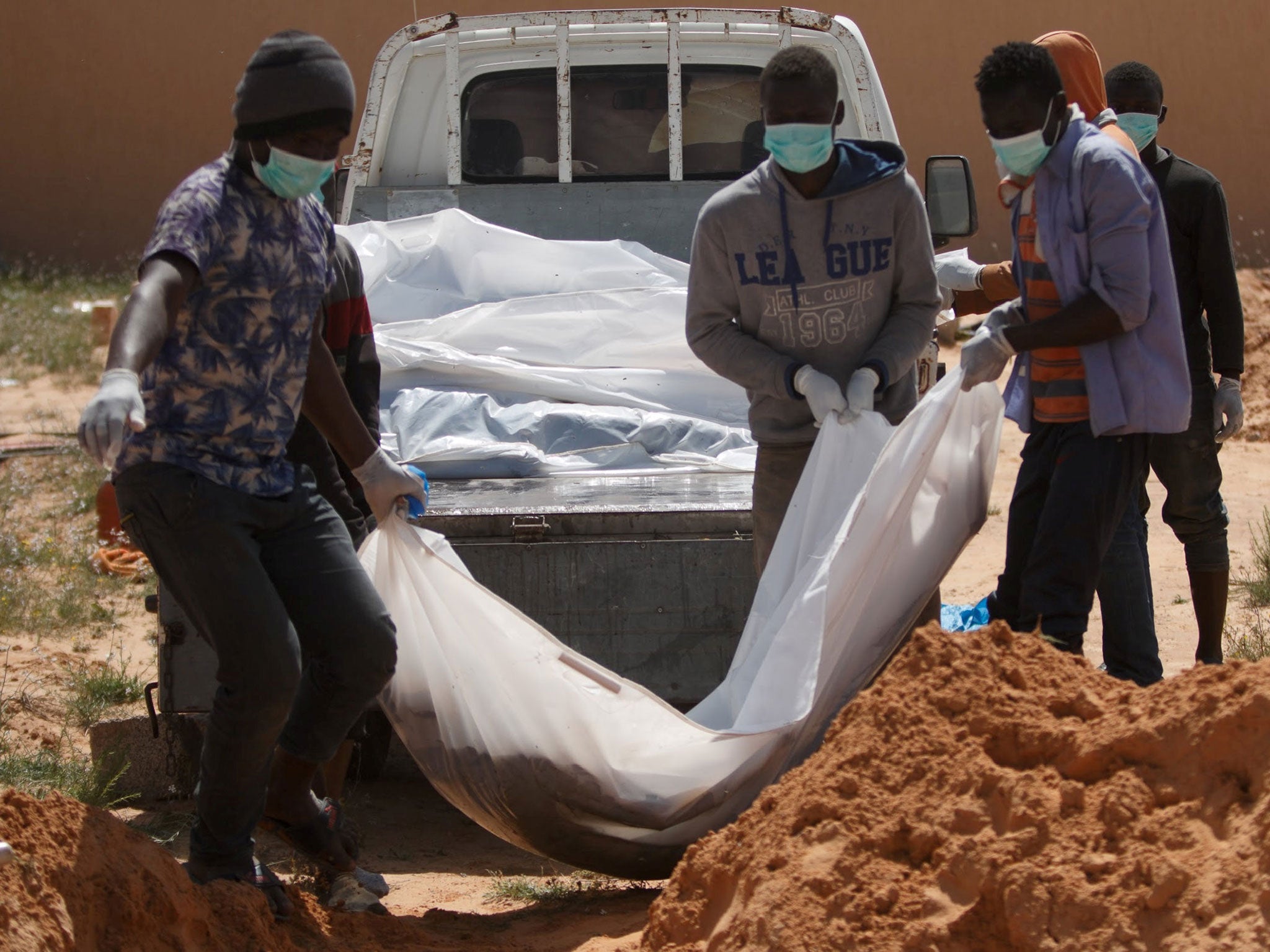EU plans to keep migrants in Libya would trap thousands in 'catastrophic conditions', Germany warns
Italy leading controversial efforts to prevent refugees from crossing the Mediterranean Sea

Your support helps us to tell the story
From reproductive rights to climate change to Big Tech, The Independent is on the ground when the story is developing. Whether it's investigating the financials of Elon Musk's pro-Trump PAC or producing our latest documentary, 'The A Word', which shines a light on the American women fighting for reproductive rights, we know how important it is to parse out the facts from the messaging.
At such a critical moment in US history, we need reporters on the ground. Your donation allows us to keep sending journalists to speak to both sides of the story.
The Independent is trusted by Americans across the entire political spectrum. And unlike many other quality news outlets, we choose not to lock Americans out of our reporting and analysis with paywalls. We believe quality journalism should be available to everyone, paid for by those who can afford it.
Your support makes all the difference.Any attempt to prevent refugees crossing the Mediterranean Sea by holding them in Libya would trap thousands of men, women and children in “catastrophic conditions”, the EU has been warned.
Sigmar Gabriel, the German foreign minister and Vice Chancellor, rowed back on Berlin’s previous support for plans led by Italy to increase cooperation with the war-torn African state.
Ruthless smugglers have capitalised on widespread lawlessness to expand their human trade, while migrants are routinely detained by armed gangs and extorted or forced into forced labour and prostitution.
“The camps existing on the ground already show horrible and catastrophic conditions,” Mr Gabriel said.
“The idea to set up [EU-backed] camps...would be an utter disregard of circumstances for the people.”
Italy signed a deal with the fragile Libyan Government of National Accord (GNA) in Tripoli in February that also promised training, equipment and money to fight human traffickers - an agreement initially endorsed by EU states at a summit in Malta.
But the move has been criticised by humanitarian groups and the UN, which warned refugees suffer arbitrary detention, rape and torture.
Last month, Pope Francis said the holding centres had become "concentration camps", while the International Organisation of Migration documented young African men being traded in “slave markets”.
The dire situation has so far scuppered prospects of replicating the controversial EU-Turkey deal, which has cut boat crossings over the Aegean Sea by seeing anyone arriving on Greek islands detained under the threat of deportation.
Mr Gabriel said parallels should not be drawn because Ankara had granted access to its camps to UN human rights experts.
"All of that does not apply to Libya,” he told reporters in in the Ethiopian capital Addis Ababa after a meeting with African Union officials.
“What we are trying instead is to help stabilise the countries on the continent. But that is difficult.”
Turkey was offered huge amounts of money towards housing millions of refugees as part of the agreement, but there are concerns funding in Libya could pass to countless armed groups including Islamists and Isis.
The EU is currently considering a request for equipment including ships armed with machine guns for the Libyan coastguard, which itself which stands accused of beating and shooting refugees while pushing back boats launched by smugglers into the Mediterranean Sea.
“Improving the capacity of the Libyan authorities to better manage borders and migration is a key objective of the EU's approach including that agreed by the EU and member states in Malta on 3 February,” a spokesperson for the European Commission said.
"We are looking at ways in which we can follow this up in terms of providing non-military assets that would enable those that we have trained to do their job in the Libyan territorial waters.”
A warlord supported by Russia, Khalifa Haftar, runs a rival government and army in eastern Libya that does not recognise the authority of the UN-backed GNA.
Both sides issued statements promising to calm tensions and fight terrorism on Wednesday, but offering no way forward for a political deal to unify the fractured country.
General Haftar and Prime Minister Fayez Seraj met in Abu Dhabi but were unable to agree on a hoped-for joint declaration.
Conflicting accounts of initial agreements and leaks of documents neither side signed have confused international mediation and negotiations to end the conflict in Libya, where a civil war has continued to rage since the British-backed ousting of Muammar Gaddafi in 2011.
The country is now the main launch point for smugglers’ boats carrying refugees to Europe, with more than 37,000 asylum seekers crossing from Libya to Italy so far this year, and a record of 1,100 dying on the treacherous voyage.

Charities operating rescue ships in the Central Mediterranean have increasingly come under attack for taking migrants to Italy, being accused of aiding smugglers.
The Migrant Offshore Aid Station (Moas) group appeared before an Italian committee conducting a fact-finding mission on the claims on Thursday, as numerous rescue operations were underway at sea.
Representatives Ian Ruggier told politicians that the maritime rescue coordination centre in Rome (MRCC) “has de facto responsibility for the coordination of all search-and-rescue activities” and confirmed the group has no contact with gangs in Libya.
“We hope that attention can now be diverted back to the unfolding crisis; and that efforts on all sides can be channelled to finding the sustainable, legal and humanitarian solutions hundreds of thousands of people desperately need,” a spokesperson for Moas said.
Director Regina Catrambone said that search and rescue operations were not a solution to the crisis and called for lasting solutions, adding: “It is time for European and national leaders to step up and provide those alternatives.”
The hearing came as the European Commissioner for Migration urged China to stop the export of rubber dinghies used by people smugglers in the Mediterranean.
“I requested the support and cooperation from the Chinese authorities in order to track down this business and dismantle it, because what they produce is not serving the common good of the country,” Dimitris Avramopoulos said after a meeting Chinese ministers.
A conference by the 28-nation Union for the Mediterranean was also held on Thursday, seeing members meeting in Malta reinstate their commitment to “addressing the root causes of irregular migration”, including conflict, persecution, poverty and drought.
Join our commenting forum
Join thought-provoking conversations, follow other Independent readers and see their replies
Comments